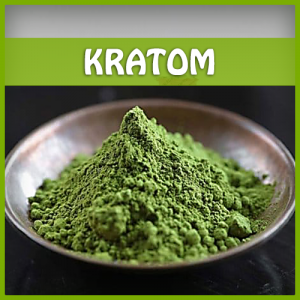Updates
CBD and the Immune System: A Breakdown of How Cannabidiol Benefits Your Immune System
The human body is an incredible machine that is capable of reacting to changes and challenges with dynamic and complex responses known as the immune system. The immune system serves many functions, but its primary goal is to protect the body from foreign invaders such as bacteria, viruses, parasites, and fungi. Fortunately, we are equipped with a set of tools that can help us recognize threats and initiate an appropriate response when necessary. These tools take the form of specialized cells scattered throughout different organs called lymphoid tissues (e.g., lymph nodes, thymus, spleen). When triggered by danger, these cells respond by producing antibodies—also known as immunoglobulins—that are capable of neutralizing foreign bodies while activating other immune responses to destroy them. This article will explore how CBD benefits the immune system and its response during illness or infection.
How does Cannabidiol (CBD) benefit the immune system?
CBD, the non-psychoactive component of the cannabis plant, is known to enhance the function of the endocannabinoid system (ECS), which is responsible for regulating homeostasis within the body. Because the ECS is intricately linked to the immune system, CBD can increase the functionality of the immune system when administered. CBD has been shown to activate specific receptors found throughout the body known as CB2 receptors. When these receptors are activated, they initiate an immune response by increasing the production of immune cells, activating stem cells, and releasing cytokines (immune system proteins that play an active role in the immune response).
The Immune System and its Responses
The immune system is comprised of a complex network of cells, tissues, and organs that work together to identify and neutralize harmful threats such as bacteria, fungi, parasites, and viruses. When a threat is detected and identified, the immune system will initiate a response to neutralize the threat.
There are three types of immune response:
- *Type-1 Immune Response: Neutralizing Foreign Bodies. When a pathogen is detected, the human body has the ability to recognize the pathogen as foreign and produce antibodies against it. When these antibodies are produced, they bind with the foreign pathogen and neutralize it while also marking it for destruction. This type of immune response is called the humoral immune response and is commonly referred to as type-1 immune response.
- *Type-2 Immune Response: Producing Immunoglobulins to Recognize and Destroy Foreign Bodies. When pathogens have entered the bloodstream, the immune system will produce immunoglobulins that are capable of identifying the pathogens and neutralizing them as soon as they enter the bloodstream. This type of response is called the cellular immune response. This response is initiated through the T-cell pathway and results in the production of killer T-cells that are responsible for destroying pathogens in the bloodstream. Once the pathogens have been eliminated from the bloodstream, the T- cells will then travel to the lymph nodes where they will remain in the memory. This means they will be able to recognize and destroy the same pathogen if they encounter it again.
- *Type-3 Immune Response: Activating Cells that Fight Infection and Repair Damaged Tissue. The third type of immune response involves the activation of macrophages and neutrophils to ingest pathogens and initiate an inflammatory response that increases tissue repair and growth. This immune response is commonly referred to as the inflammatory response. The inflammatory response is a result of the activation of the NGF-β pathway, which is also known as the common pathway. The cells that are responsible for initiating the inflammatory response include macrophages, neutrophils, mast cells (specialized cells found in the connective tissues of the body), and dendritic cells (cells that play an active role in the immune response).
What to know before using CBD to benefit your immune system
CBD is a powerful immune system enhancer, but it is important to note that it will not treat an infection. If you are experiencing any signs of illness, it is important to first identify the cause of your illness and then treat it accordingly. Unfortunately, it is also not recommended that you use CBD as a way of treating symptoms associated with certain illnesses. Since CBD is an immune system enhancer, it is possible that you will experience an increase in symptoms. This is because CBD will trigger the immune system to fight against the illness, but it will not be able to finish it once the symptoms begin. Because of this, it is recommended that you work with your doctor to decide when and how to use CBD to benefit your immune system. The best way to use CBD to benefit your immune system is by taking it on a daily basis. This will allow your body to build a natural defense and protect itself. To learn more, please visit EastWestHerbal.com

























